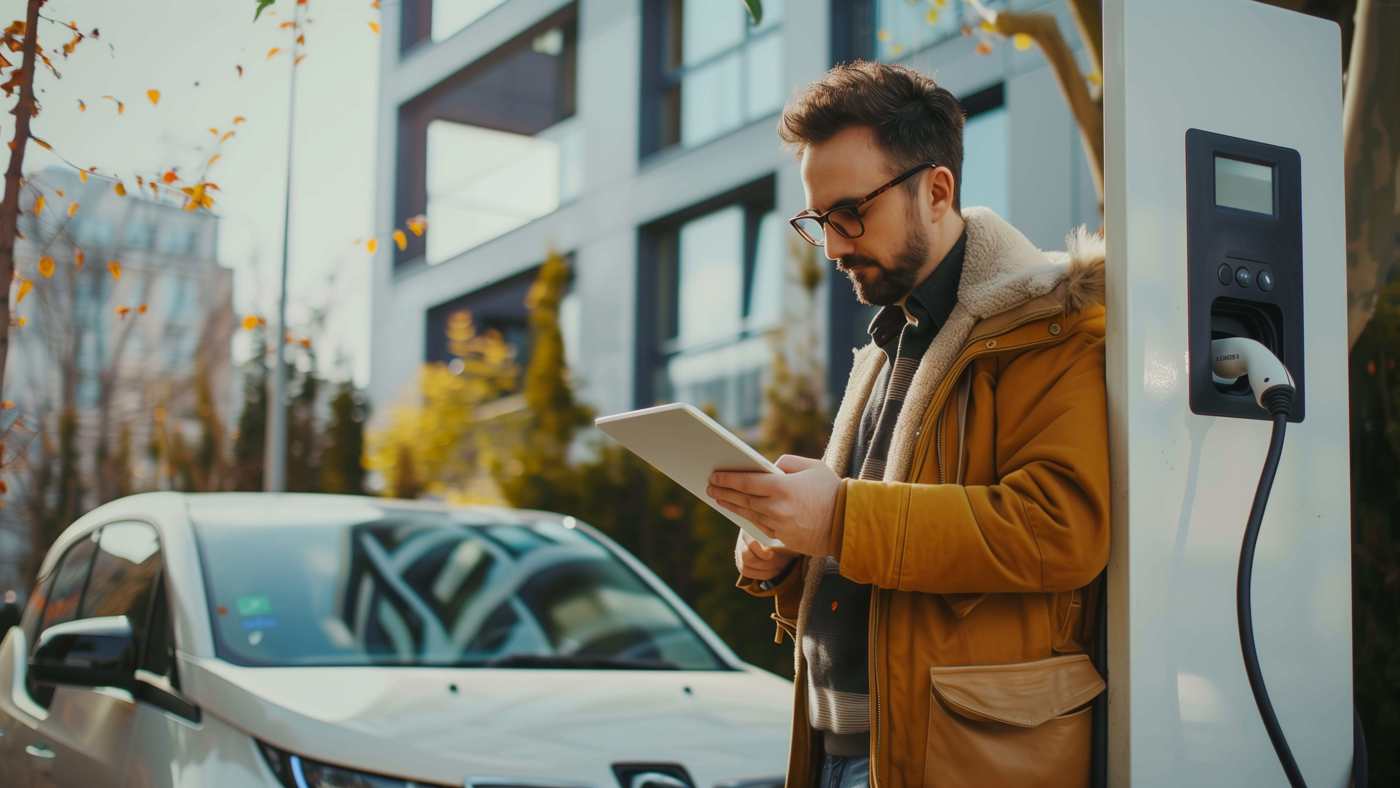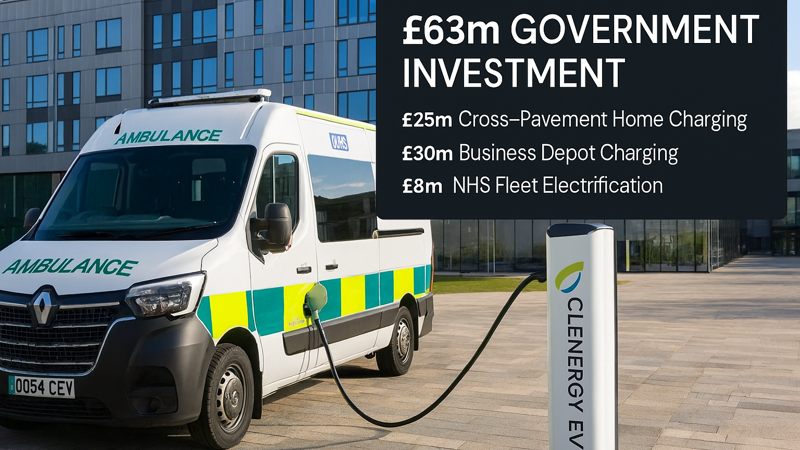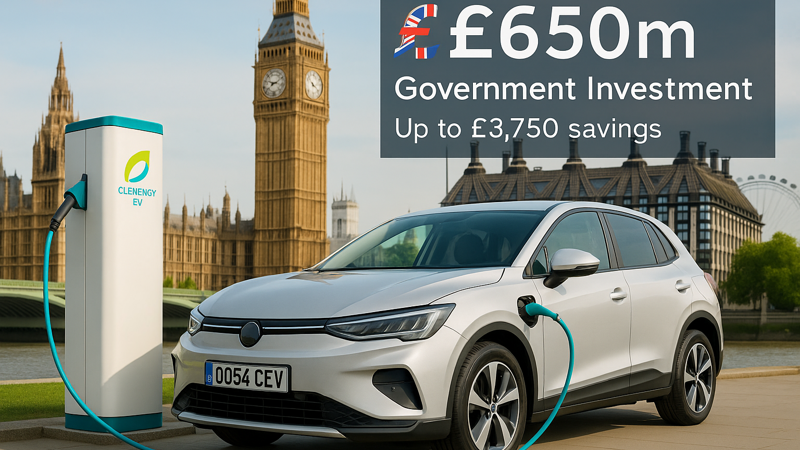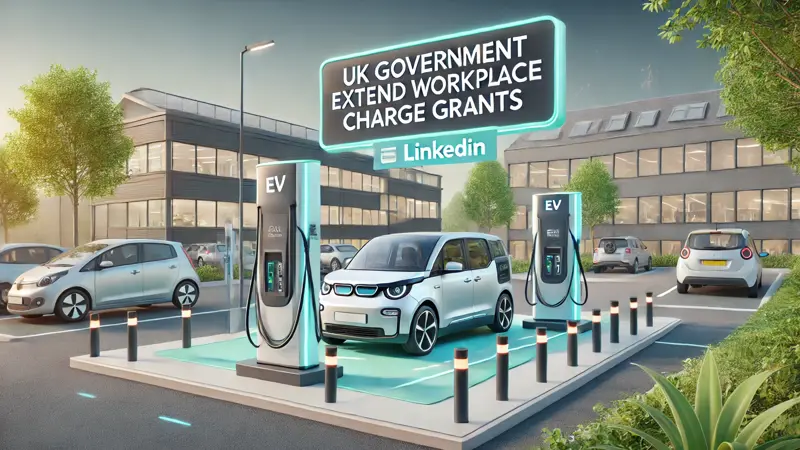
EV News: Restoring 2030 ICE ban, Emergency EVs, and 15 Minute charge
Our weekly EV news round-up, keeping you plugged into the week's biggest stories in EV from the week so that you don’t have to search.
In this week’s round-up, we’ll be covering:
Labour pledges to restore 2030 ICE ban for cars
Labour has doubled down on its intentions to restore the ICE sales ban back to its original 2030 target date.
Originally, the Conservative government announced the ban before Rishi Sunak’s controversial rollback of the target to 2035 later last year.
Alongside the announcement, the accompanying ZEV mandate was rolled out to impose sales targets to ensure progress towards the ban, which are set to increase year-on-year.
With 2024’s target of a 22% ZEV sales share for all automotive manufacturers trading in the UK proving to be a struggle for some, however, Labour’s plans to bring the deadline closer could still prove controversial among some manufacturers.
While the current rates of 17.9% are showing an upward trend, there were calls from some in the industry earlier in the year for the government to introduce incentives to aid manufacturers in meeting the targets.
With the ZEV mandates working towards an 80% sales share for electric cars (and other alternative fuels) by 2030, the plans would necessarily result in steeper sales targets for manufacturers.
In its election manifesto, the party pledged its support of the transition to EVs by accelerating the rollout of charge points and supporting buyers of second-hand electric cars by standardising the information supplied on the condition of batteries.
In the meantime, however, manufacturers and the industry as a whole will continue to operate under the pretence of the current measures.
To many of the companies managing an EV transition we talked to whose plans remained unchanged following the initial Government rollback of the ban, Labour’s pledges will have little effect until potentially put into practice.
EU threatens to raise tariffs on Chinese EV imports
The EU has threatened to impose tariffs on Chinese EV imports of up to 38% this week, amidst politicians labelling them a threat to its own industry.
According to the BBC, the EU has "provisionally concluded" that Chinese (EV) manufacturers will face tariffs from 4 July "should discussions with Chinese authorities not lead to an effective solution".
The EU's announcement comes as it continues an investigation into what it claims is a flood of cheap, government-subsidised Chinese cars into the trade bloc.
EV makers who cooperated with the investigation, which the EU's governing European Commission launched in October, will face an average of 21% duty, while those who did not will face one of 38.1%. These would be implemented on top of the current 10% tariff rate already levied on all-electric cars produced in China, meaning the maximum total tariff could end up sitting at around 48%.
Non-Chinese car companies that produce some EVs in China, such as Mercedes and Renault exporting, will also be affected by a 21 percent tariff, while Tesla “may receive an individually calculated duty rate”, according to the EU Commission.
The move comes in the wake of a rise in Government-subsidised cheaper EV options entering the EU market from China, accounting for approximately £8bn in trade.
Germany's Transport Minister, Volker Wissing, was vocal in criticising the move, fearing Chinese retaliation and stating that ongoing economic penalties risked sparking a "trade war" with Beijing.
The EU defended its stance, however, with Trade Commissioner Valdis Dombrovskis stating:
“We have no option but to act in the face of soaring imports of heavily subsidised battery electric vehicles, from China.”
“This puts our industry at risk of injury.”
Electric vehicles deployed by emergency services double in three years
The number of EVs deployed by the emergency services has doubled in the last three years, according to data revealed from an FOI request sent by CPO Gridserve.
With fleet and Government organisations leading the charge in terms of net zero transport transition, hospitals, and emergency services have been some of the biggest adopters of EVs in the last few years.
Emergency service vehicles have been identified as one of the sectors most suited towards electrification, largely due to their average of 10,485 miles travelled per year tending to be in short journeys within an authority’s jurisdiction. That, paired with the ability to charge at a centralised depot during long periods of inactivity, makes the vehicles prime candidates for electrification.
A previous study by Cenex found that more than three-quarters of the fleet operated by Essex police could be replaced by battery electric vehicles (BEVs) with sufficient range to complete their average daily mileages.
The same study found that this would reduce emissions by half (50%) for police forces and give a lifetime cost saving of £6,000-7,000 per vehicle.
Elsewhere, we have several clients spanning the fire & rescue sector, local councils, hospitals, police forces, and more who have found the switch to running a section of its fleet on electric hugely beneficial.
Car brand releases the fastest charging EV ever that can charge in 15 minutes
And in lighter news this week, EV manufacturer Lotus has shaken up the EV game with its new Emeya hyper-GT, now crowned the fastest-charging EV ever. In just 14 minutes, the stylish supercar 10% to 80%.
How does it do it? The Emeya’s cutting-edge 800-volt architecture is key, enabling it to pull in power at a massive 400 kW (providing a charger can supply this, of course). This means that under optimal conditions, the car can add an astonishing 1,105 miles of range per hour of charging - although its range is capped at around 350 miles. The secret sauce also includes advanced battery cooling and innovative cell-to-pack technology, which crams in more energy while keeping the battery cool and efficient.
As Lotus races towards becoming an all-electric brand by 2028, the Emeya is a thrilling glimpse into a future where EVs are fast, fun, and hassle-free to charge. It’s safe to say Lotus is one of the manufacturers leading the charge on the electric supercars front.
That’s all for the EV news this week! Thanks as ever for checking in with Clenergy’s round-up to keep you informed on all things electric, and make sure to head to our blogs or news sections if you want to know more. Alternatively, if you’re interested in saving money, making money, and balancing expenses with software for your home EV charging, fill out the form below to get started.


